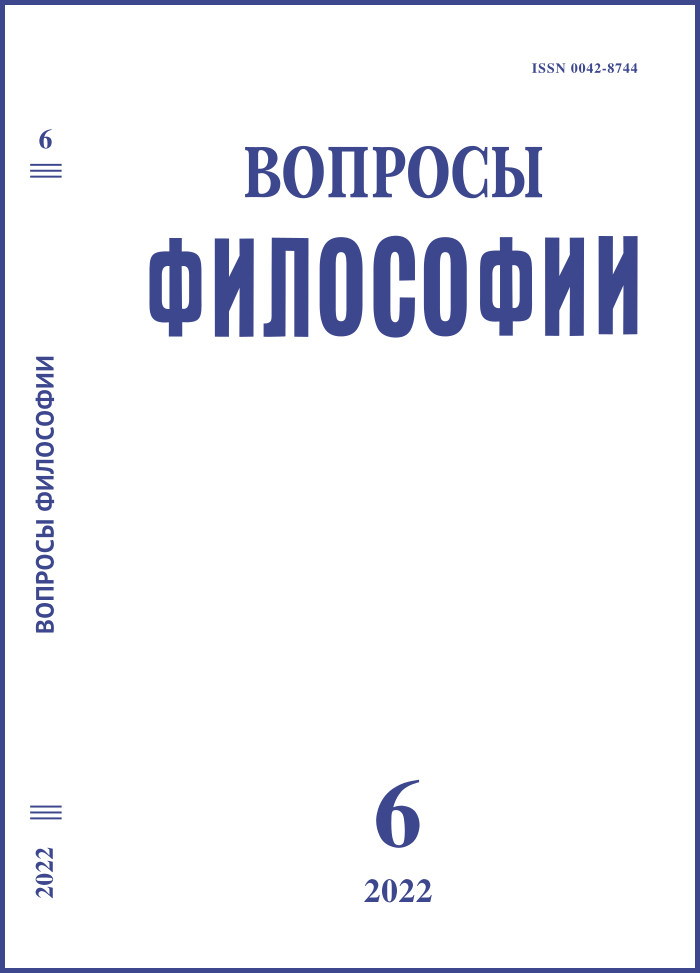Dialectics of the Counter-Enlightenment
DOI:
https://doi.org/10.21146/0042-8744-2022-6-45-57Abstract
The article is devoted to the theoretical explication of the concept of “Counter-enlightenment”, which is being debated today in Western thought's historiography. The term gained currency after a famous 1973 essay by the English thinker Isaiah Berlin, and it described various attempts to criticize the philosophy of the French Enlightenment. In this material, the Counter-Enlightenment is considered a socio-philosophical project that starts from the idea that modern man has not yet reached maturity or adulthood, which would allow him to rely solely on his mind, without relying on external authority. Various variants of counter-enlightenment thought are considered in the example of material, primarily domestic philosophy. It is concluded that the Counter-Enlightenment can have not only a traditionalist, but also a futuristic character, and such a denial of the coming of age of a modern person would imply the recognition of the power of certain messengers from the future, in the role of which, in modern technocratic utopias, artificial intelligence also acts. The general conclusion to which the article comes is that the contemporary epoch is a dialectical combination of Enlightenment and Counter-Enlightenment projects, the clash of which largely determines the dynamics of the modern era.
Published
Versions
- 2025-02-06 (2)
- 2022-06-30 (1)

